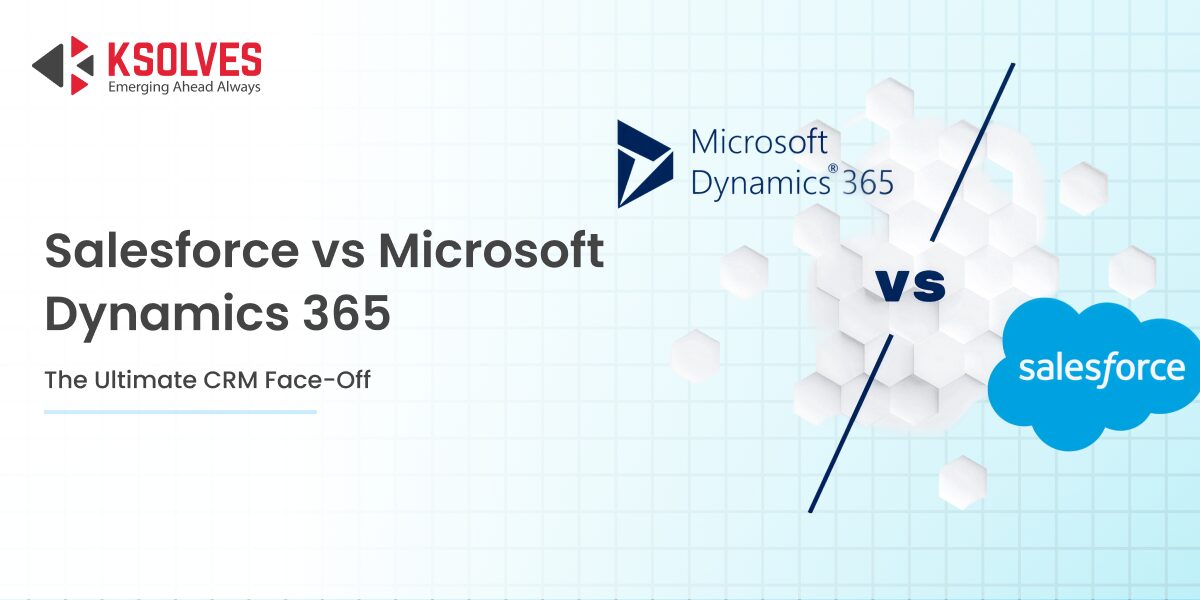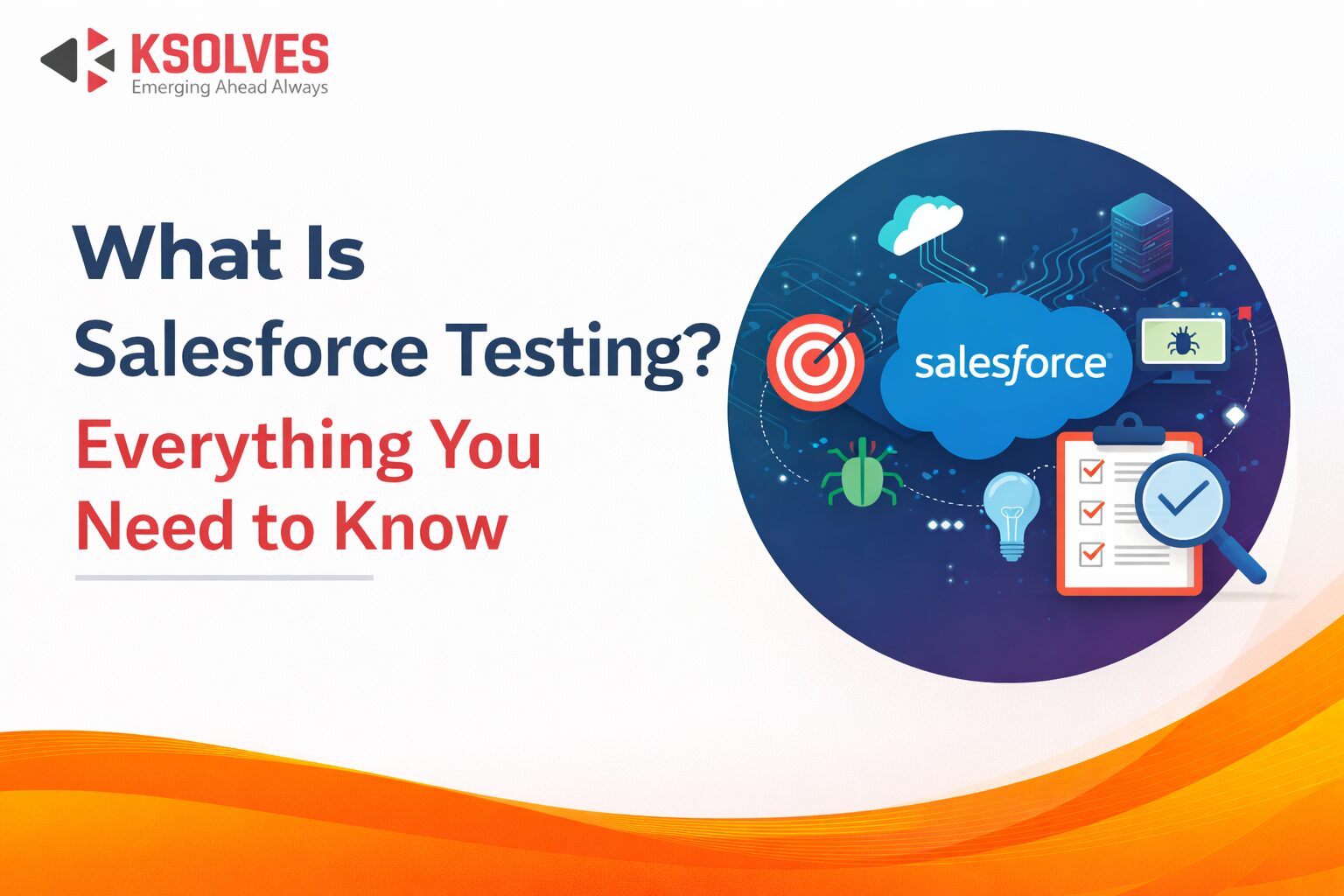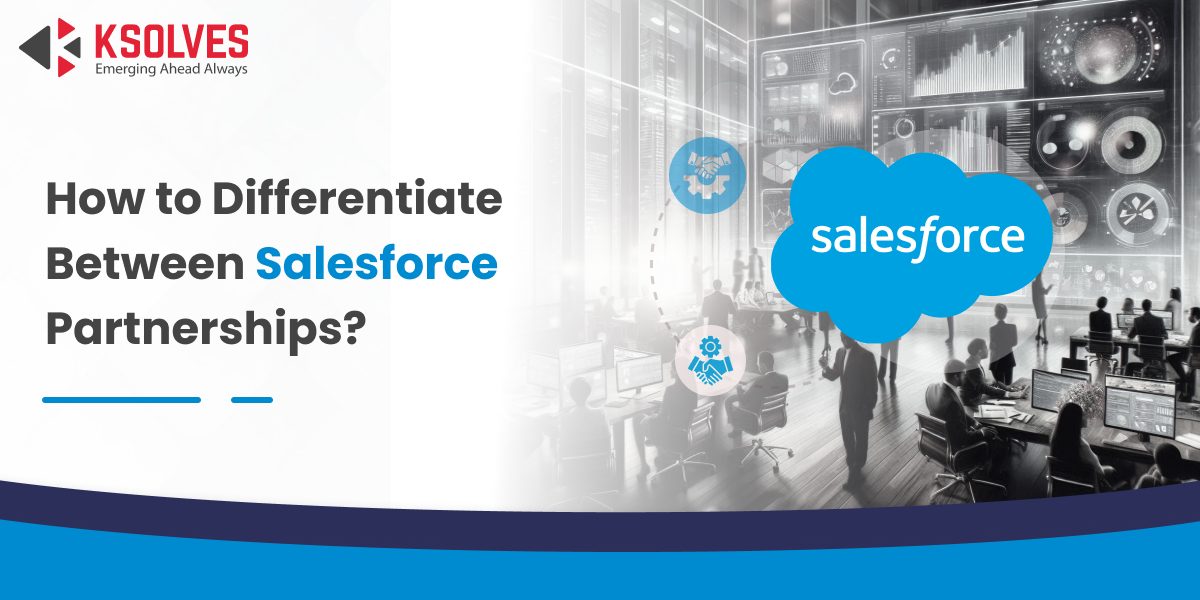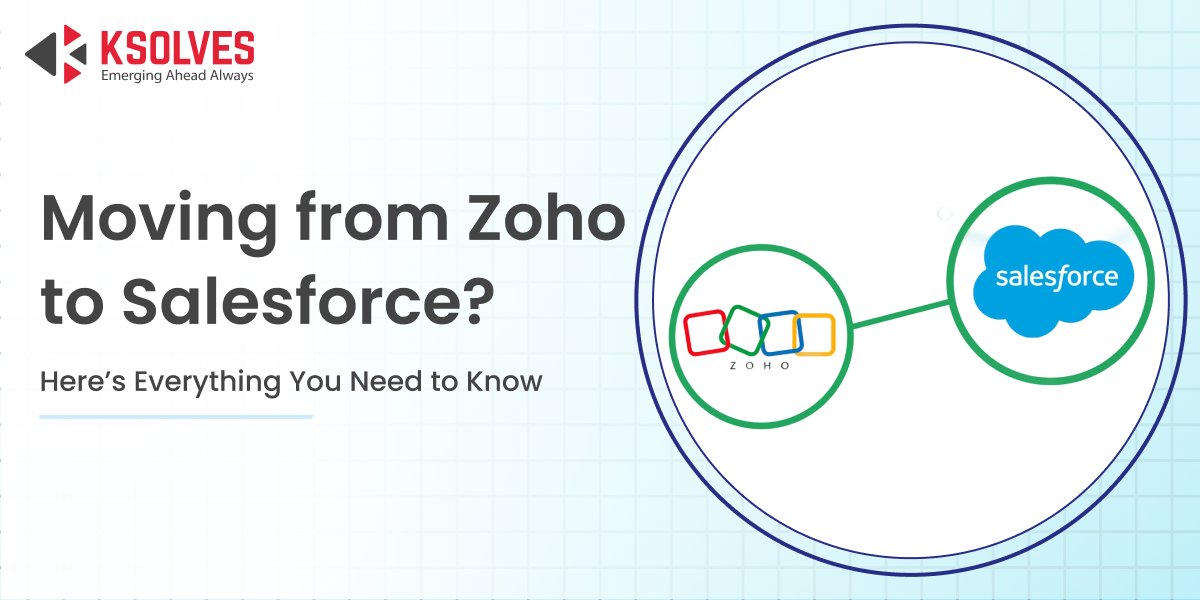Microsoft Dynamics 365 vs. Salesforce: A Detailed Comparison
Salesforce
5 MIN READ
October 27, 2025
![]()

Choosing the right customer relationship management (CRM) system is one of the most important decisions a growing company can make. A modern CRM does far more than store contacts. It connects sales, marketing, and customer service teams, automates daily tasks, and helps businesses deliver a better experience at every stage of the customer journey.
Salesforce and Microsoft Dynamics 365 are two of the most popular CRM platforms on the market today. Both have strong reputations, a broad range of features, and the ability to support businesses of all sizes and industries. But they also differ in key areas like usability, pricing, customization options, and how well they fit into your existing tech stack.
In this article, we’ll take a look at how Dynamics 365 and Salesforce compare. You’ll learn what each platform does well, where they differ, and what to consider before making your final choice. The goal is simple: to help you feel confident that your CRM decision will set your business up for long-term success. So, let’s begin!
Salesforce: An Overview
Salesforce is widely recognized as one of the pioneers of cloud-based CRM software. Launched in the late 1990s, it helped popularize the Software-as-a-Service (SaaS) model by replacing traditional on-premises CRM systems with a flexible, subscription-based cloud platform. Over the years, Salesforce has grown into a market leader with a large global user base and a robust ecosystem of partners and developers.
Key features of Salesforce:
- Comprehensive cloud suite: Salesforce offers a complete range of cloud-based tools for sales, marketing, customer service, analytics, and even custom app development, all working together on one connected platform.
- Sales and marketing automation: Built-in features help teams manage pipelines, automate outreach, and personalize customer journeys.
- Customer service features: Includes case management, self-service portals, and AI-driven support tools to handle customer issues quickly.
- Extensive app marketplace: With the Salesforce AppExchange, businesses can expand functionality easily by adding trusted third-party apps and integrations.
Overall, Salesforce combines innovation, scalability, and an easy-to-use interface, making it a strong fit for companies that want an all-in-one CRM that can adapt as their business evolves.
MS Dynamics 365: An Overview
Microsoft Dynamics 365 is Microsoft’s flagship CRM and ERP solution, launched in 2016 by combining its earlier Dynamics CRM and ERP products into one integrated cloud platform. Backed by Microsoft’s global reach and trusted brand, Dynamics 365 is built for businesses that want to unify sales, marketing, customer service, and even back-office functions like finance and operations — all within the Microsoft ecosystem.
Key features of Dynamics 365:
- CRM and ERP in one: Unlike many stand-alone CRMs, Dynamics 365 combines customer relationship management with enterprise resource planning, giving companies a broader operational view.
- Deep Microsoft integration: It works seamlessly with other Microsoft products like Outlook, Teams, Excel, and Power BI, which helps teams collaborate and leverage data across familiar tools.
- Modular and flexible: Dynamics 365 offers a wide range of apps, including sales, marketing, customer service, field service, finance, and supply chain, so companies can start with what they need and add more as they grow.
- Customizable and industry-ready: With industry-specific solutions, low-code tools like Power Platform, and AI-driven insights, businesses can tailor Dynamics 365 to match unique processes and requirements.
In short, Dynamics 365 appeals to organizations that want an integrated CRM and ERP solution with tight Microsoft product alignment, making it a popular choice for companies already invested in the Microsoft ecosystem.
Salesforce vs. Microsoft Dynamics 365: A Comprehensive Comparison
Here’s a side-by-side comparison of Microsoft Dynamics 365 and Salesforce to help you evaluate which CRM better fits your business needs.
- Deployment and Cloud Flexibility
Microsoft Dynamics 365 stands out for its flexible deployment options. Organizations can choose between full cloud, hybrid, or even on-premise hosting, depending on their IT policies and compliance needs. This flexibility appeals to industries with strict regulatory environments or those that prefer to manage certain data internally. Dynamics 365 runs seamlessly on Microsoft’s Azure cloud but can also integrate with other infrastructure. This gives businesses more control over data sovereignty and system performance.
Salesforce is built as a pure cloud-based SaaS solution. All customer data and CRM operations are hosted on Salesforce’s secure, multi-tenant cloud. This means businesses don’t have to worry about hardware, updates, or server maintenance. However, this “cloud-only” model can feel restrictive for companies that need to keep certain workloads on-premises or meet unique data residency requirements, since there’s no official on-premise or private-cloud option.
| MS Dynamics 365 vs. Salesforce: Deployment and Cloud Flexibility | ||
| Factor | Microsoft Dynamics 365 | Salesforce |
| Deployment model | Cloud, hybrid, or on-premise | 100% cloud-based SaaS only |
| Hosting flexibility | Flexible: Azure, hybrid, or on-premise | Fixed to Salesforce’s cloud platform |
| Data residency control | More control; meet local or industry-specific data requirements | Limited; all data is stored in the Salesforce cloud |
- User Experience & Interface
Salesforce is known for its modern, intuitive user interface that feels familiar to people who work in fast-paced digital environments. Its Lightning Experience offers drag-and-drop dashboards, easy-to-read pipelines, and customizable workspaces that help sales, marketing, and support teams stay organized. However, new users sometimes face a learning curve when setting up advanced automation or navigating the platform’s many modules. This can mean extra training time, especially for less tech-savvy teams.
Dynamics 365 takes a different approach by aligning its design closely with the Microsoft ecosystem. The interface feels familiar to anyone who uses Outlook, Teams, or other Microsoft 365 tools, which reduces onboarding time for staff already comfortable with Office products. Integrated workflows, like editing CRM data in Excel or collaborating in Teams, make daily tasks feel seamless. While its navigation can seem less modern than Salesforce’s slick dashboards, the deep Microsoft integration often outweighs this for companies that live and breathe Office.
| MS Dynamics 365 vs. Salesforce: Deployment and Cloud Flexibility | ||
| Factor | Microsoft Dynamics 365 | Salesforce |
| User interface | Familiar Microsoft-style interface | Modern, intuitive Lightning Experience |
| Learning curve | Easier for users already using Microsoft tools | Can be steep for advanced features |
| Productivity integration | Deep integration with Outlook, Excel, Teams | Broad app ecosystem, but not tied to Office |
- Customization & Extensibility
Dynamics 365 delivers strong customization capabilities, particularly through Microsoft’s Power Platform. Power Apps, Power Automate, and Power BI make it possible to design custom apps, workflows, and reports with minimal coding. While Dynamics’ AppSource marketplace isn’t as large as Salesforce AppExchange, it does provide a good range of industry-specific solutions and add-ons. Organizations that already rely on Microsoft Azure or the broader Microsoft ecosystem often find these tools integrate naturally with other business systems.
One of Salesforce’s biggest advantages is how far you can tailor it to match unique workflows. Its platform provides extensive configuration options for admins and powerful low-code tools like Salesforce Flow and Lightning App Builder for building custom apps and automations without heavy coding. The Salesforce AppExchange — its massive third-party app marketplace — adds another layer of extensibility, offering thousands of vetted integrations and add-ons covering industries and niches.
| MS Dynamics 365 vs. Salesforce: Customization & Extensibility | ||
| Factor | Microsoft Dynamics 365 | Salesforce |
| Low-code capabilities | Power Apps, Power Automate | Lightning App Builder, Salesforce Flow |
| Third-party marketplace | AppSource: moderate but focused | AppExchange: extensive ecosystem |
| Configuration tools | Strong with Power Platform | Extensive point-and-click tools |
- Integration Ecosystem
A big strength of Dynamics 365 is how tightly it connects with the broader Microsoft environment. Native integrations with Office 365, Outlook, Teams, and SharePoint make it easy for users to collaborate, manage documents, and sync data without extra connectors. Plus, its APIs, Azure Data Connectors, and Logic Apps provide a clear path for integrating more complex systems. This native Microsoft backbone is especially appealing to businesses already using Azure cloud services or the Power Platform.
Salesforce excels at integrating with a diverse range of third-party systems through its robust REST and SOAP APIs and its ecosystem of certified middleware solutions. MuleSoft, which Salesforce owns, provides powerful enterprise integration capabilities for companies with complex tech stacks. For organizations with varied business apps or custom legacy systems, Salesforce’s flexibility and wide selection of pre-built connectors make it easier to design a unified data flow.
| MS Dynamics 365 vs. Salesforce: Integration Ecosystem | ||
| Factor | Microsoft Dynamics 365 | Salesforce |
| Native integrations | Deeply tied to Office 365, Teams, Azure | Large app ecosystem, works well with diverse systems |
| APIs & connectors | Azure connectors, Logic Apps, Power Platform | Robust APIs plus MuleSoft for advanced integrations |
| Middleware support | Azure Logic Apps, Data Connectors | MuleSoft and third-party iPaaS options |
- Pricing & Licensing
Microsoft Dynamics 365 follows a modular, subscription-based licensing model. Companies can start with core CRM modules like Sales or Customer Service and add other apps (like Marketing or Field Service) as needed. Pricing depends on user type and role. Full users pay more than light users or team members. This flexibility can help businesses manage costs, but it can get complicated to estimate the final bill once you factor in add-ons, storage, and implementation fees. For organizations already using other Microsoft services, bundled pricing or enterprise agreements can help with cost predictability.
Salesforce also runs on a per-user, per-month subscription model, with different editions ranging from basic ‘Essentials’ to full-featured ‘Unlimited’. Each tier comes with its own limits and capabilities. Businesses must also budget for extra features. Add-ons like Marketing Cloud, CPQ, or additional storage can raise the total cost quickly. While Salesforce can be affordable for small teams initially, costs often grow as user numbers and customization needs increase. Many companies appreciate the predictable SaaS model, but should weigh the long-term total cost of ownership when comparing it to Dynamics 365.
| MS Dynamics 365 vs. Salesforce: Pricing & Licensing | ||
| Factor | Microsoft Dynamics 365 | Salesforce |
| Licensing model | Modular, role-based pricing | Tiered editions with add-ons |
| Cost predictability | Flexible but can be complex with add-ons | Clear tiers but extra features increase TCO |
| Small vs large teams | Bundles help for enterprise; SMEs watch add-ons | Scales well but larger teams can face steep costs |
- AI, Analytics & Automation
Dynamics 365 has steadily strengthened its AI and analytics capabilities, embedding tools like Microsoft Copilot for CRM. These AI assistants help sales and service teams automate tasks, generate content suggestions, and surface actionable insights. Because Dynamics is part of the broader Microsoft ecosystem, it integrates naturally with Power BI for advanced reporting and interactive dashboards. Users can analyze customer trends, track KPIs, and build custom reports without needing separate BI tools. It’s an advantage for companies that already use Power Platform or Azure AI services.
Salesforce’s AI offering, Einstein, is deeply woven throughout the platform. Einstein AI provides predictive lead scoring, next-best-action recommendations, and automated data entry suggestions to make sales and service teams more productive. Salesforce also has strong built-in reporting and customizable dashboards, plus more advanced analytics tools like Tableau for enterprise-grade visualizations. This tight AI and analytics integration helps businesses use their CRM data for smarter decision-making and process automation
| MS Dynamics 365 vs. Salesforce: AI & Automation | ||
| Factor | Microsoft Dynamics 365 | Salesforce |
| Built-in AI | Microsoft AI + Copilot | Salesforce Einstein |
| Reporting & dashboards | Power BI integration, strong out-of-the-box reports | Robust dashboards, advanced analytics with Tableau |
| Automation | Power Automate for workflows | Flow Builder, AI-powered automations |
- Support & Community
Dynamics 365 customers benefit from Microsoft’s extensive global support network and partner ecosystem. Depending on your licensing agreement, you get different levels of support. It ranges from standard ticketing to dedicated account managers and Premier Support for enterprises. One of the biggest advantages is the large network of certified Microsoft partners and MS Dynamics 365 consultants worldwide who can help with implementation, customization, and training. The Dynamics user community is also active, with local user groups, forums, and regular Microsoft events to help companies get more out of their CRM investment.
Salesforce is known for its well-established support ecosystem, which includes 24/7 support options on higher-tier plans and extensive online resources like Trailhead for self-guided learning. The Salesforce Partner Network is one of the largest in the CRM space, so you’ll find plenty of certified implementation partners, developers, and consultants. The Salesforce community is massive and vibrant, with user groups, dedicated Trailblazer Communities, and global events like Dreamforce that help customers learn best practices and stay up to date.
| MS Dynamics 365 vs. Salesforce: AI & Automation | ||
| Factor | Microsoft Dynamics 365 | Salesforce |
| Support levels | Tiered support plans; Premier Support available | Tiered support, 24/7 for top tiers |
| Partner ecosystem | Large network of global Microsoft partners | One of the biggest partner networks in CRM |
| User community | Active user groups, local chapters, MS events | Trailblazer Community, Dreamforce, Trailhead resources |
- Security & Compliance
Security is one of Dynamics 365’s key selling points, especially for enterprises. It runs on Microsoft’s Azure cloud, which provides strong security controls, built-in threat detection, and advanced identity management. Microsoft holds numerous compliance certifications, including GDPR, HIPAA, ISO standards, and industry-specific frameworks, making it easier for regulated industries to meet requirements. Role-based security, audit trails, and data loss prevention are all built in. Companies that already trust Azure benefit from consistent security management across their business systems.
Salesforce also maintains a strong reputation for enterprise-grade security. Its multi-tenant cloud architecture is designed with robust user access controls, data encryption, and regular third-party audits. Salesforce holds certifications for GDPR, HIPAA, SOC 2, FedRAMP, and more, which are especially valuable for businesses with strict compliance needs. Salesforce provides tools for user role management, field-level security, and event monitoring, and it regularly releases security updates to keep customer data protected.
| MS Dynamics 365 vs. Salesforce: Security & Compliance | ||
| Factor | Microsoft Dynamics 365 | Salesforce |
| Cloud security | Built on Azure; strong threat protection | Enterprise-grade, multi-tenant security architecture |
| Compliance certifications | GDPR, HIPAA, ISO, FedRAMP, more | GDPR, HIPAA, SOC 2, FedRAMP, plus industry add-ons |
| Access & data controls | Role-based security, DLP, and audit trails | Robust user controls, encryption, and event monitoring |
MS Dynamics 365 vs. Salesforce: Which CRM is Best for Your Business
Choosing between Salesforce and Microsoft Dynamics 365 comes down to more than just features. It’s also about how each platform aligns with your company’s strategy, budget, and tech ecosystem.
Start with your internal questions:
-
- What’s your budget, and how predictable does pricing need to be over time?
- Do you already rely heavily on Microsoft products like Office 365 or Teams?
- How much flexibility and customization will you need now and as you grow?
- Do you prefer an all-cloud SaaS model (Salesforce) or value having hybrid/on-premise options (Dynamics 365)?
- How important is tight AI integration, native analytics, or industry-specific modules?
When Salesforce might be a better fit:
-
- You want a pure cloud CRM that scales globally.
- You need fast access to a huge marketplace of third-party apps (AppExchange).
- You prefer a modern, intuitive UI and strong community-driven support (Trailhead, user groups).
- You value robust automation tools (Salesforce Flow, Einstein) and AI baked into the platform.
When Microsoft Dynamics 365 could make more sense:
- You’re already a Microsoft-heavy organization using Office 365, Teams, or Azure, and want deep integration.
- You need flexible deployment: cloud, on-premise, or hybrid.
- You value a single ecosystem for CRM and ERP (thanks to Dynamics 365’s modular suite).
- You want familiar interfaces and productivity tools that lower training time for your team.
Final Thoughts
There’s no one-size-fits-all answer when comparing Salesforce and Microsoft Dynamics 365. Both are powerful, market-leading platforms with distinct strengths. The best CRM for your business is the one that aligns with your current tech stack, your long-term goals, and your team’s capacity to manage, customize, and grow it.
At Ksolves, we help businesses navigate this choice with confidence. As a trusted partner for both Salesforce implementation services and Microsoft Dynamics 365 services, we bring certified expertise, real-world implementation experience, and a commitment to tailoring the right solution for your unique needs, whether you’re a growing startup or an established enterprise.
Ready to find the CRM that fits your vision? Let’s talk about how Ksolves can help you get there. Contact us at sales@ksolves.com.
![]()








AUTHOR
Salesforce
Md. Asad Khan, an expert Technical Project Manager at Ksolves, who is a certified Salesforce architect at Ksolves, brings 7+ years of experience. He specializes in FSL, B2B, Service & Sales Cloud, and Non-profit cloud, excelling in APEX, Aura Component Framework, Lightning Components, Triggers, Visualforce, and creating insightful dashboards and reports.
Share with